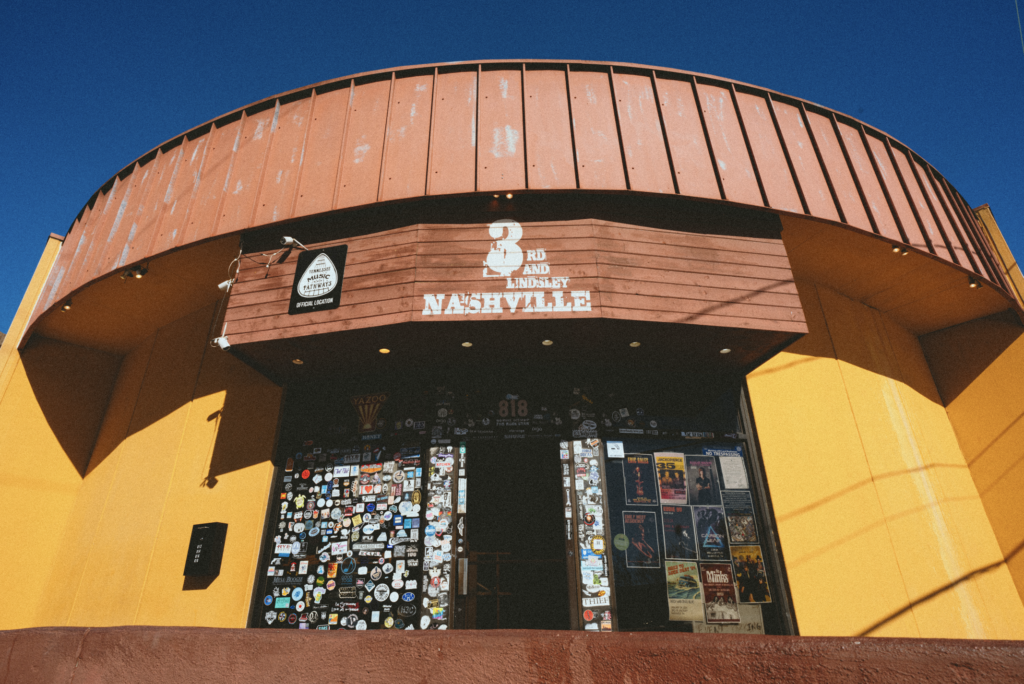Nashville at a crossroads: preserving music city’s diverse heritage amidst new challenges
Nashville is a city known for country music, but it has a rich musical heritage across many genres. It’s the city where Jimi Hendrix, Taylor Swift, and Dolly Parton learned to play, and it’s called Music City for a reason. Right now, it is at a crossroads and faces the weight of its own success. Critical challenges threaten its independent music venues, including issues with real estate, rising costs, and the pressure to commercialize through large partners just to stay afloat.

Photography by Chuck Adams
In response to these issues, the Nashville Metro Council initiated a study aimed at assessing the state of these vital cultural hubs and formulating strategies for their preservation and growth. Nashville Independent Venue Study was spearheaded by a project team from PennPraxis and VibeLab, Culture Shift Team with support from Nashville Metro Planning.
This extensive research has been released, offering profound insights into the economic, social, and cultural significance of Nashville’s independent music venues. Conducted throughout 2023, the study utilized a blend of quantitative analysis, qualitative research methods, and extensive community engagement to inventory and classify these venues.
What we found out
Some of the key findings include, for example, Nashville’s venue inventory: Nashville has at least 252 music spaces. At least 112 regularly present music as their primary offering. Of these, 24 are independent music venues; 48 have some degree of independent ownership; 40 are not independently owned and/or operated.
We also found that Nashville is venue-dense, meaning it boasts more venues per person than many other global music cities. The report also found that independent venues are under pressure as they are located on land with lower average assessed values compared to quasi-IMVs and non-IMVs. This suggests that IMVs are far less able to keep up with the region’s rising rents and property taxes than their non-independent peers.
Recommendations
Besides that five central themes emerged during the research, and the new NIVS study outlines a wide range of potential actions, from short-term to long-term, that the city can adopt to better support IMVs and live music:
- Support live music through civic leadership and a “whole of government” approach.
- Use policy, regulatory, and development tools to support venues.
- Reduce challenges and costs of starting and operating new venues.
- Make urban mobility work for live music venues, workers, and patrons.
- Extend music-related investments to more genres and more neighborhoods.
The findings of the Nashville Independent Venue Study highlight the urgent need for coordinated efforts to protect independent music venues from urban pressures and economic uncertainties. By uniting stakeholders and policymakers around shared goals, the study aims to spark meaningful actions that will sustain Nashville’s cultural vibrancy for future generations.
As Nashville continues to evolve, this study serves as a crucial roadmap for ensuring that its independent music venues not only survive but thrive, maintaining the city’s status as a beacon of musical innovation and community spirit.
The Nashville Independent Venue Study has been featured in local press, highlighting its importance and the critical challenges facing Music City. To read more, visit the following links: [ Axios, Nashville Today, Nashville Scene, WNXP 91.1 FM, WPLN News, The Tennessean]
Interested in conducting a study in your city?
Write lutz@vibe-lab.org
